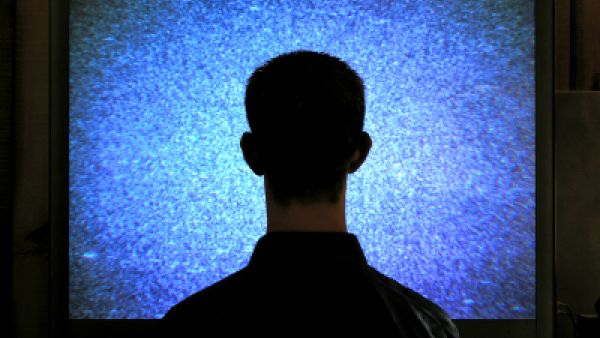Two articles about two different Middle Eastern countries, making movies to amp up their censorship of 'adult' material. Egypt shows a schism of attitudes on pornography, while Lebanon wants to keep it clean before 10:30 P.M.
Porn Storm Reveals Cleft in Egypt Attitudes
From Cairo: It is the kind of publicity most political organizations can only dream of. But when an Egyptian Islamic fundamentalist MP, Younis Mekhioun, proposed his party’s most recent legislative platform, perhaps not even he anticipated the response.
The scale of reaction to the Al-Nour proposal is symptomatic of the cleft which has emerged among Egyptians since the fall of President Hosni Mubarak last year.
After calling for a blanket ban on pornography in Egypt, Mekhioun triggered a tidal wave of comment from his fellow countrymen and women – much of it supportive, but some of it coming from those who were amused, angered and utterly incensed.
His call, which is now due to be discussed by Egypt’s lower house of parliament, was made on behalf of the Salafist Al-Nour Party, the ultra-orthodox Islamists who managed to surprise many Egyptians with their robust, runner-up finish during the recent elections.
By Tuesday night, Al-Nour’s Facebook wall – usually a dreary collection of political announcements and initiatives – was awash with febrile reactions to the plan.
Beneath a photo of Mekhioun, which showed the bespectacled, middle-aged MP sporting a black and silver beard and sitting next to a briefcase with an Al-Nour sticker slapped on one side, more than 700 comments had been posted.
Many of them were positive, with devout Muslims praising Mekhioun and giving thanks to Allah for his initiative. Some of it was even helpfully instructive. “This is a great request,” said one Facebook user. “But there are a lot of programs able to overcome the blocking of these sites. It is best to solve the problems of young people, such as marriage and stability.”
The reaction elsewhere was even stronger. Many of those who commented on Twitter were scathing in their condemnation of Al-Nour, a party whose members once wrapped shawls around a classical statue in Alexandria to cover its naked modesty during a rally.
Wael Eskandar said the move was “symptomatic of hypocrisy.” He said, “These are people who can’t think straight. How can they be in charge of the country?”
Many of the liberal, secular activists who helped spearhead the revolution were left trailing in the wake of the well-organized Islamists who trounced them in the recent parliamentary elections.
According to Diaa Rashwan, director of the Al-Ahram Center for Political and Strategic Studies, the Salafists of Al-Nour were quicker to adapt to the realities of post-Mubarak Egypt. “They were newcomers,” he said. “But they were ready to learn and ready to move. They were transformed.”
Al-Nour ended up scooping 25 percent of the vote for the Egyptian parliament, leading some at the liberal end of the spectrum to fear their hard-line stances on everything from bikinis to beer will eventually filter down into policy.
Like many Arab countries, Egypt is a nation where much is publicly forbidden, yet still finds space to thrive “tehet el-tarabeza” – or under the table, as Egyptians would say.
A search of Google Trends reveals that last year Egyptians were the fifth biggest group of Internet users worldwide to search for terms like “sex.”
As has been pointed out by the Egyptian blogger Moftasa, a quick glance at Google Insight shows how these kind of searches drop significantly during the holy month of Ramadan, when presumably plenty of observant Muslims decide to give up their backroom habits for the good of their religion.
The data provides a fascinating insight into the status of pornography in the Middle East. Demand for the product is apparently just as high; but then so too is the public censure surrounding its use.
This week’s proposal from the Al-Nour Party is not the first time Egyptians have been faced with a ban on blue movies.
In 2009 a court issued a ruling which prohibited pornographic websites – an order which was dismissed as unworkable by the then-government of Mubarak.
Last year, a court in Tunisia, now governed by the Ennahda Party, ordered the country’s Internet authority to impose a ban on pornography.
Later in October, protesters tried to torch one of the country’s TV stations after it broadcast “Persepolis,” the award-winning film which shows a depiction of God – something which is forbidden in Islam.
The incidents have consequently prompted claims that political Islam may emerge as the biggest winner of the Arab Spring.








